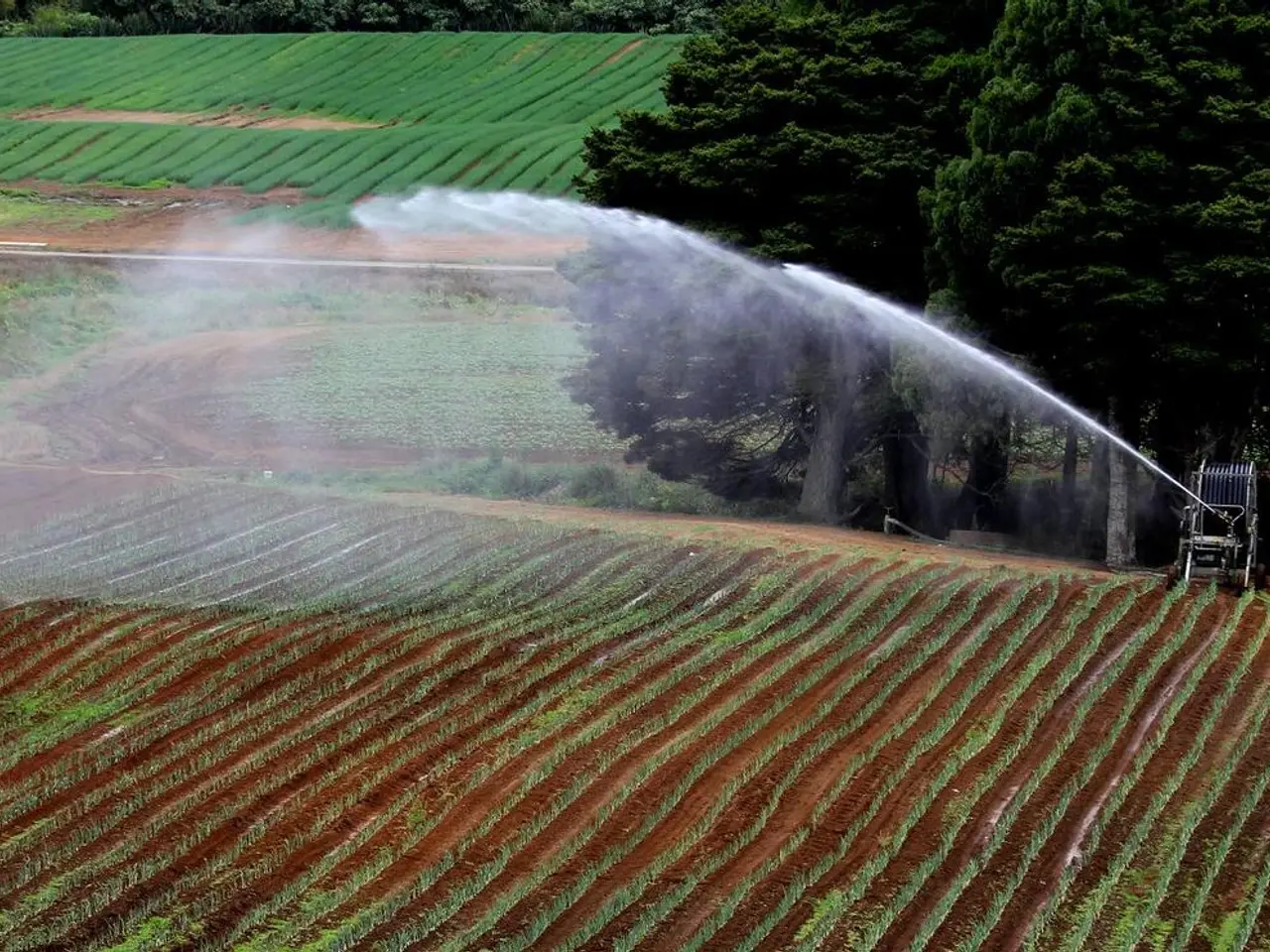Upcoming 2nd Sustainable Agriculture Summit of 2025 Advocates for Green Expansion to Drive India's Economic Advancement
India Embraces Sustainable Agriculture: A Stepping Stone Towards a Prosperous Future
In a significant stride towards transforming Indian agriculture, the 2nd Sustainable Agriculture Summit & Awards 2025 was held in New Delhi. The event brought together stakeholders from various sectors, including farmers, industry leaders, scientists, development practitioners, and senior bureaucrats, with a shared vision of making Indian agriculture a global benchmark.
Union Minister Ramdas Athawale asserted that India's growth story must be rooted in the progress of its farmers and the adoption of sustainable agriculture. This sentiment was echoed by Dr Vimala Prakash, Head of the Technology Innovation Center at IPL Biologicals Limited, who stated that science-led innovation can bridge the gap between farm needs and sustainable outcomes.
The summit recognised exemplary work across multiple categories, celebrating achievers such as Godrej Agrovet, IPL Biologicals, Hindustan Urvarak & Rasayan Limited (HURL), SeedWorks International Limited, Bihar Agricultural University, Sabour, Bhagalpur, and several others.
Key initiatives and strategies being implemented in India to ensure sustainable and farmer-centric agricultural growth include balanced and sustainable fertilizer use, digital soil health cards, agricultural cooperative strengthening and expansion, boosting agricultural exports and value addition, market reforms, farm finance and risk management improvements, promotion of climate-resilient farming, diversification of rural livelihoods, technology adoption, integrated national programs, and an environmental sustainability focus.
Siba P Mohanty, Managing Director of HURL, emphasized the role of responsible input management and water stewardship in securing the future of Indian agriculture. He noted that much of the agri-credit flow in India remains concentrated in short-term crop loans rather than long-term climate-resilient infrastructure.
Dr. Jayadev Sarangi, Former Secretary of the Government of Delhi and Government of Goa, highlighted that agriculture today is not just about food security but about economic strategy. He stressed the importance of keeping farmers at the centre of economic transformation to realize the vision of Viksit Bharat, as envisioned by Prime Minister Narendra Modi.
The summit was organized by Sustainability Matters and IndiAgri, supported by Indian Railway Finance Corporation, Godrej Agrovet, IPL Biologicals, Small Industries Development Bank of India (SIDBI), and HURL. Dr Rajendra Prasad, General Manager & Regional Head of SIDBI, emphasized SIDBI's role in encouraging entrepreneurship across industries, including agriculture, and leveraging resources from international, multilateral, and bilateral partners to fund mitigation projects addressing climate and sustainability challenges.
Innovative district administrations have been central to introducing initiatives that not only address climate and resource challenges but also diversify farm incomes in regions dependent on traditional crop cycles. For instance, Ms Deepshikha, IAS, Collector & District Magistrate of Ferozepur, Punjab, is promoting chilli cultivation between paddy and wheat cycles to boost farmer welfare, improve soil health, reduce environmental stress, and diversify farm incomes.
Under the banner of Krishi 2047, Sustainability Matters aims to document what's working on the ground, build a platform for dialogue, recognition, and policy linkages that can take these models national. Manoj Kumar Dubey, Chairman & Managing Director of Indian Railway Finance Corporation, emphasized the need for the private and public sectors to work together to unlock capital for green and farmer-centric innovations.
Six IAS officers, including Ms Deepshikha, were honoured for their district-level sustainable initiatives. The other honourees are Ravi Anand, IAS, Deputy Commissioner-cum-District Magistrate, Jamtara; Pamela Satpathy, IAS, District Collector, Karimnagar; Hari Chandana, IAS, District Collector, Hyderabad; Himanshu Nagpal, IAS, Chief Development Officer, Varanasi; and Rajesh Jogpal, IAS, Haryana.
Financing climate-smart agriculture is an investment in India's economic future, as asserted by Union Minister Ramdas Athawale. Collectively, these initiatives form a multi-dimensional strategy focusing on farmer empowerment, market access, sustainable input use, technological modernization, and climate resilience to drive India's agricultural sector towards sustainable, inclusive growth in line with the vision of Viksit Bharat by 2047.
- The 2nd Sustainable Agriculture Summit & Awards 2025, held in New Delhi, celebrated work in various categories, recognizing achievers such as Godrej Agrovet and IPL Biologicals.
- Science-led innovation, advocated by Dr Vimala Prakash, bridges farm needs and sustainable outcomes for Indian agriculture.
- The National Government, through key initiatives like digital soil health cards and agricultural cooperative strengthening, is working towards sustainable and farmer-centric growth in the agricultural sector.
- Siba P Mohanty stressed the importance of long-term climate-resilient infrastructure investments, noting the concentration of agri-credit flow in short-term crop loans.
- Dr Jayadev Sarangi highlighted the importance of keeping farmers at the center of economic transformation for the realization of Viksit Bharat.
- SIDBI, a summit supporter, encourages entrepreneurship and leverages resources for mitigation projects addressing climate and sustainability challenges.
- Innovative district administrations, like Ferozepur, Punjab, are promoting sustainable farming practices to boost farm welfare and reduce environmental stress.
- Under the Krishi 2047 banner, initiatives aiming to drive sustainable, inclusive growth in Indian agriculture are being documented, dialogued, and linked for policy implementation.
- Union Minister Ramdas Athawale asserts that investing in climate-smart agriculture is an investment in India's economic future, contributing to sustainable, inclusive growth in line with the vision of Viksit Bharat by 2047.




